In an interview with Timo Gilgen, the Bremen plant manager talks about his understanding of leadership, identifies the challenges facing the location, and explains how the north manages to build ten different models simultaneously and why a purely electric plant is not an option.
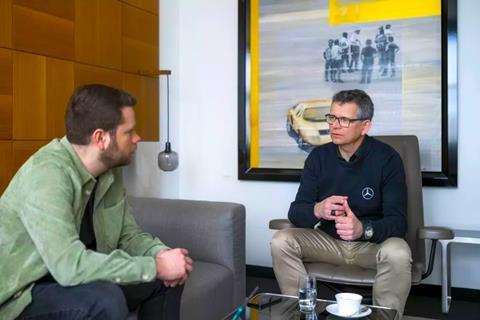
Mr. Frieß, in about a year, at the beginning of 2026, the next new model will be launched in Bremen. What kind of work will you have to do as plant manager?
A model launch always requires a certain amount of effort to ensure everything runs smoothly, but as a team,Manage it well. In Bremen, we have a high level of expertise in ramp-up. Ten vehicles have been launched here in the last four years – our model range has been renewed since 2020. This gives us experience and a good understanding of how things work. We also serve as a center of excellence for the core segment. In advance, we prepare the vehicles together with our partners from development, planning, and the ramp-up factory “Factory One” so that they are ready for production.
How exactly is the plant being converted?
Our plant needs to be prepared – modifications are taking place and new systems are being integrated. We’ve taken advantage of the production downtime over the New Year for this, among other things. Team training is also important: The workers visit our training center, where they learn about the new features of the vehicle. The all-electric GLC will be coming to our plant. Since we already build the EQE here, it’s not as big a step for us as it was when the EQC rolled off our production line as the first all-electric model from Mercedes-Benz.
What was different back then?
When the EQC arrived, for example, the topic of high voltage was a central focus. All employees received basic high-voltage training, as well as training on handling vehicles and cables. There are also strict rules regarding when the vehicle is armed and what happens next. These were new processes that were integrated into everyday work.
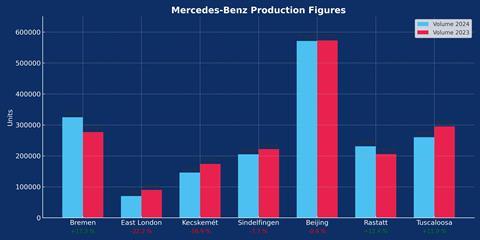
When you started in Bremen, the pandemic began at the same time. How would you describe the time of lockdowns with the subsequent problems, the semiconductor shortage, and external influences such as the war in Ukraine up to the present day?
The coronavirus phase was indeed a very special time. What was interesting was that you had to find a way forward together with many people and parties. This phase was challenging and required a lot of flexibility and decision-making skills. When I look back on that time, I am particularly proud that we mastered it so well together with the works council. Basically, you need a lot of energy and solidarity to react quickly to sudden changes. As a location, we stood together during this time, accepted the respective challenges, and always found a solution.
”This is an award for our team and our skills” - Michael Frieß on the decision to build the SL Maybach in Bremen
How did it come about that Bremen is now even building a Maybach, and what does that mean for the location and for you as plant manager?
First of all: We have ten different products at the site, seven of which are manufactured exclusively in Bremen. The Maybach is one of them – as is the Mercedes-AMG SL, the basic model of the Mercedes-Maybach SL. When it comes to vehicles, the Bremen-based Team Public has a strong reputation. For me, it’s important to always be able to demonstrate that we’re achieving our goals, production figures, and quality standards, and satisfying our customers. The first important step was the SL. If a Maybach is also being developed from a vehicle, it makes sense to do it at the same location. This is a testament to our team and our capabilities.
Can employees apply for a position in Maybach production?
We have a culture where staff turnover between halls is normal. Our employees still move halls even after 20, 30, or 40 years—that’s not a given. If a hall needs staff, we ask the employees if they would like to be assigned elsewhere. For many interested candidates, a selection process then takes place. This allows us to facilitate transfers. The SL team has many years of expertise, as we have been building the SL here in Bremen since 1989.
Read more Mercedes-Benz stories
- Mercedes-Benz excels in connected manufacturing at Berlin-Marienfelde
- Advances AI and robotics in production: Mercedes-Benz
- Mercedes-Benz develops flexible van architecture for EV and ICE powertrains
- A new paint finish to improve sustainability at Mercedes-Benz’ Wörth plant
There are many factories that produce many different models, but such extreme product diversity as here in Bremen is special, isn’t it?
Yes, absolutely. We have two large production lines at the Nordwerk – Hall 9 and Hall 93 – that produce our main volume. SL, GT, and Maybach benefit from a more than 35-year tradition ofSL.
Do topics such as digitalisation, smart factories and efficiency play any role at all in small-scale production?
We focus on efficiency in all our production facilities. The introduction of our digital ecosystem MO360 has been a key help in this regard. Applications such as “QUALITY LIVE” help us monitor vehicle production in real time. The MO360 application accesses all data collected during the production process. It is important to us to meet our customers’ high expectations and build the right vehicle for each customer.
In Bremen, you combine the production of combustion engines and BEVs. Do you still see advantages in a plant that exclusively builds electric cars?
Our goal is not to produce exclusively electric vehicles. Production in our global production network is designed to be flexible in terms of drivetrains. Electric vehicles roll off the same production line as hybrids and vehicles with conventional drives – and we are accustomed to dealing with high levels of variability. Our mechanisms and methods ensure that we work efficiently and with great flexibility despite the diverse workloads.
Do you already sense that AI will play an increasingly large role in your work?
Absolutely. For us, AI is a groundbreaking technology and an opportunity to build even better vehicles. AI also helps our employees; it relieves their workload and makes us more competitive. In addition to all our other development projects, we are also testing AI chatbots in production here in Bremen, for example, and are leveraging our MO360 digital ecosystem for this purpose.
Do the ideas come from the employees themselves? And what about the fear that theJob is replaced by AI?
Our culture of continuous improvement has existed for a long time. Employees are willing to share their ideas because they often lead to genuine improvements in their daily work. Many are technically minded – some use 3D printing to create prototypes. This allows us to react more quickly and strengthen our innovation capabilities at the Bremen site. Our innovative strength and willingness to try new things are what distinguish Bremen. We combine flexibility and efficiency – this is the best compromise between automation and manual labor. For example: The aggregate carrier is lifted mechanically, but the employees still make the final fine adjustments by hand. This is the optimal combination.
“For me it is essential to make decisions as quickly as possible” - Michael Frieß
How would you describe your personal leadership style? What is important to you when dealing with employees?
Really, that answer should be left to others… I find myself to be authentic and always approachable – and this is confirmed. While there isn’t always someone in my office, I receive many direct inquiries via email or in person, which I’m happy to respond to. There are fireside chats with team leaders, foremen, and employees in groups of 15 to 30 people, where we typically discuss for an hour and a half. These conversations always provide valuable feedback.
What skill do you think is most important as a plant manager?
The key to leadership is making decisions quickly. When there is uncertainty or a lack of consensus, you need a leader or leadership team that can make decisions. For me, it is essentialTo make decisions as quickly as possible, but after listening and understanding what is at stake.
How does communication work between the plants and plant managers in the global Mercedes production network? Are there differences in the German-speaking region, or does the location have no influence?
The department headed by Michael Bauer, Head of Production at Mercedes-Benz Cars, combines all European, US, and South African plants. This means that almost all car body plants are under one roof. We maintain very close communication so we can learn quickly from each other and move forward together. I find this support very collegial and helpful.
How would you describe the digital production system MO360 and what concrete added value does it have for you in Bremen?
Good production requires a production system that brings clarity to the decision-making hierarchy. Digital technology supports us by making data immediately available – this is more efficient than before, when we entered numbers on boards by hand. This transparency makes us faster. One example is the handling of adhesive data: In the past, expired adhesive was disposed of; today the data is consolidated to achieve savings.
This system, based on MO360, ensures that data is managed cleanly and used for further optimisation. At first, I didn’t understand the term “data lake,” but through discussions with younger colleagues, I learned a lot about it. Today, I’m a fan because the digital data world opens up completely new possibilities.
Regarding logistics and supplier networks: What are your hopes for Catena-X? Is this already an integral part of your daily work?
For me personally it is stillNot exactly everyday life, but certainly for our logistics colleagues. Similar to quality and consumption data, logistics will benefit greatly from standardised, digital databases. This creates maximum transparency: With compatible systems, logistics professionals can manage supply flows in a networked manner, interact with suppliers, and respond to disruptions in the supply chain. This is of long-term importance for remaining competitive.
Can you give examples or use cases where something was developed and rolled out here or something that doesn’t exist at other locations?
In terms of digital topics, such as “QUALITY LIVE,” which is now available at all locations, we have established innovations in paint finishing – for example, automated sanding during cathodic dip-painting, which is not available anywhere else. We are also piloting automated interior inspection using a tactile robot, which our colleagues at the Digital Factory Campus in Berlin-Marienfelde are testing with us.
Agreements exist whereby ideas from the various production areas are brought into corporations (Assembly, Body, Paint) and then piloted. We are rolling out the pilot projects rapidly. Furthermore, with the EQC, we were the first to integrate electric vehicles into the basic production processes.
Last question: How do you ensure that employees continue to have secure jobs, even in the face of looming tariffs? What is your approach to alleviating employees’ fears?
Today’s volatile situation is challenging, but in Bremen we are looking forward to a secure future. In recent years, we have launched ten new models,Seven of which are manufactured exclusively in Bremen. This provides a clear perspective. Furthermore, the employees at the Bremen plant are covered by ongoing job security, which has just been extended until the end of 2034. But of course, we have to work on competitiveness every day – especially here in Germany





























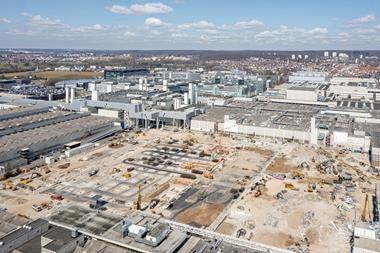
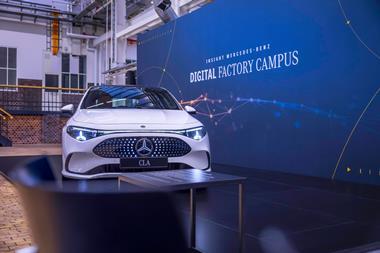
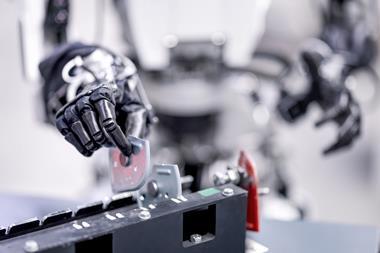
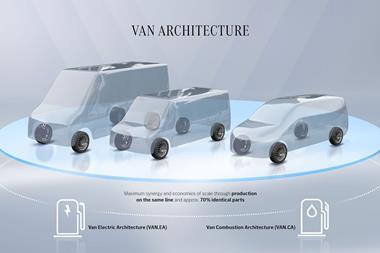
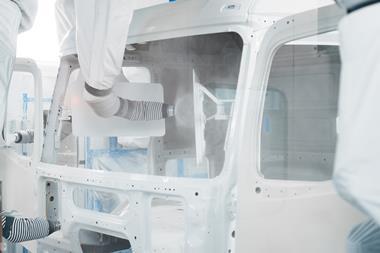
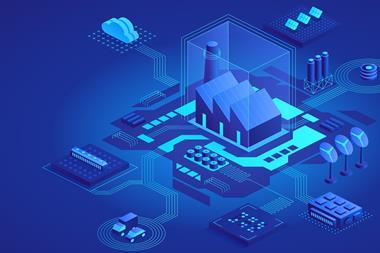



No comments yet